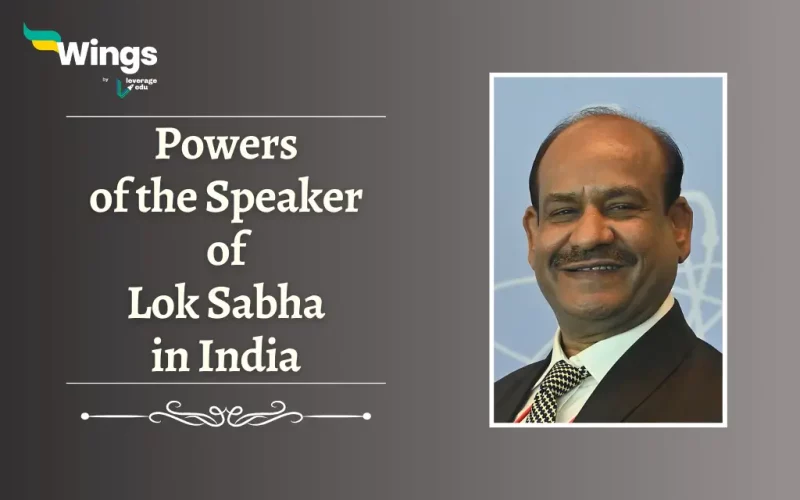The Speaker of the Lok Sabha of the Indian Parliament has an important role in guaranteeing the smooth functioning of the House. Furthermore, they exercise a variety of powers and functions that maintain order, encourage debate, and uphold the House’s dignity. Read on to learn more about the Powers of the Speaker of the Lok Sabha in India.
Powers of the Speaker of Lok Sabha
Additionally, the Speaker gets their Powers from 3 main sources:
- The Constitution of India: Articles 93 to 96 of the Indian Constitution summarise the powers and privileges of the Speaker.
- In addition, these include presiding over sessions, maintaining order, and guaranteeing compliance with Parliamentary procedures.
- The Rules of Procedure and Conduct of Business of Lok Sabha: This rulebook elaborates on the specific procedures for conducting debates, voting, and other Parliamentary activities.
- Moreover, the Speaker interprets these rules and assures their proper application.
- Parliamentary Precedents: There are established practices and rulings from past speakers that guide the Speaker.
- Particularly in situations not explicitly covered by the Constitution or the rules.
- Additionally, these precedents contribute to the smooth and constant functioning of the House.
Moreover, here is a closer look at some key powers of the Speaker:
- Presiding Officer: The Speaker presides over all sessions of the Lok Sabha, hence regulating debates and guaranteeing members follow to the rules.
- They control the sequence of speakers, recognize members who wish to speak, and make motions to vote.
- Maintaining Order and Decorum: The Speaker is responsible for maintaining order and decorum in the house.
- Additionally, they can criticise members for unruly behaviour, suspend them from the house in extreme cases, or even name them, which carries a formal reprimand.
- Interpretation of Rules: The Speaker acts as the final authority on interpreting the Constitution, the rules of the house, and parliamentary precedents. Thus, their rulings are binding on all members.
- Casting Vote: In the event of a tie in a vote, the Speaker has the casting vote, hence deciding the outcome.
- However, they usually avoid voting unless necessary to break a deadlock.
- Disciplinary Power: The Speaker can punish members for breaches of privilege or contempt of the house.
- They can also refer serious offences to the Privileges Committee for investigation and appropriate action.
Also Read: 6 Types of Standing Committees in India
Functions of Speaker of Lok Sabha
Furthermore, other than the powers, the Speaker has many Functions:
- Guardian of Privileges: The Speaker protects the privileges of the house, its committees, and its members. Additionally, these privileges are necessary for the independent functioning of the legislature.
- Nomination of Committees: The Speaker appoints the chairpersons of different Parliamentary committees, which have an important part in analysing legislation and government policies.
- Decision on Agenda: The Speaker decides on the agenda for each session, thus deciding which issues will be discussed by the House.
- Adjournment of House: The Speaker has the authority to adjourn the House or suspend a meeting in the absence of a quorum (minimum number of members required to conduct business).
- Joint Sittings: When necessary, the Speaker presides over joint sittings of both Houses of Parliament (Lok Sabha and Rajya Sabha).
- Leader of the Opposition: The Speaker recognizes the leader of the opposition party which is an important part in guaranteeing a healthy balance of power within the House.
Related Blogs
Lastly, we hope you liked our blog and gained an understanding of the Functions of the Vice President in India. Moreover, you may even read more blogs and empower yourself with knowledge regarding Civics and Polity!
 One app for all your study abroad needs
One app for all your study abroad needs













